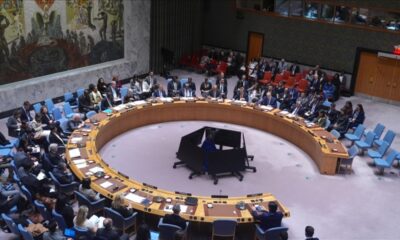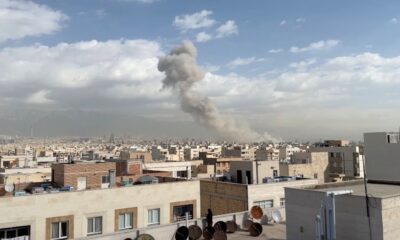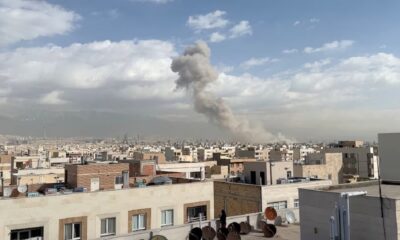Latest News
Rights watchdog survey finds 4.4 million Afghans live with a disability
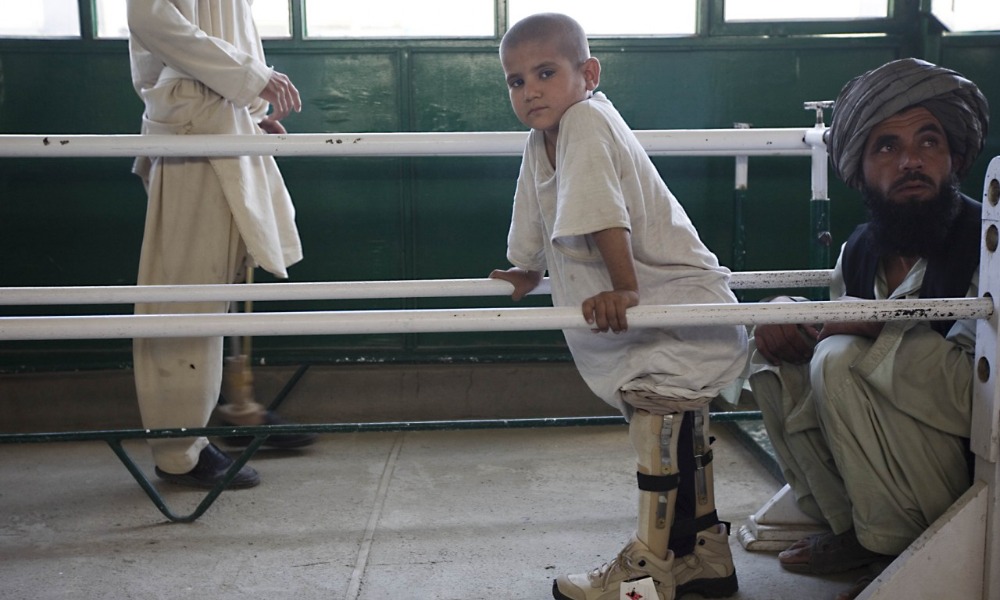
The Afghanistan Independent Human Rights Commission (AIHRC) said in a report on Sunday 4.4 million people in Afghanistan live with a disability and that the number people with disabilities has increased by 11.2 percent during the past 14 years.
The AIHRC data shows that 13.9 percent of the total population of Afghanistan (4,475,800) have been identified as people with disabilities.
“In 1384 (2005), this figure reached 2.7 percent of the total population of the country; thus, in 14 years, the number of people with disabilities has increased by 11.2 percent,” the report said.
The organization has recorded physical, mental, biological, and metabolic disabilities among the Afghan people.
Based on the findings of this study 1,042 (69.3 percent) of the 1,504 respondents have physical disabilities; 294 (19.5 percent, physical sensory disabilities; 42 (2.8 percent), biological and metabolic disabilities, such as diseases, including diabetes, and blood pressure problems; while epilepsy, autism, or mental and psychological impairments account for 68 (4.5 percent), and 58 (3.9 percent) of the people surveyed had additional disabilities, the report read.
The AIHRC, meanwhile, stated that war, explosions, arbitrary use of drugs, traffic accidents, non-observance of safety measures in homes, not being vaccinated and shortfalls in maternal healthcare during pregnancy were identified as the main causes of disabilities in the country.
The organization called on people and the government to support people with disabilities as they “are among the most vulnerable layers of the society.”
According to the AIHRC findings, 573 (38.1 percent) of those who participated in the study reported that they had experienced violence at home and in the community because of their disability and that they have been insulted, mocked, and harassed.
“Among those who were abused and subjected to insults, humiliation, and harassment, 14 (2.4 percent) were victims of physical violence in the home and community, and 391 (68.2 percent) were deprived of support by family members, people, and government; 127 people (22.2 percent) were humiliated and insulted, 18 people (3.1 percent) were barred from entering public places and public gatherings, and 23 people (4 percent) were banned from traveling and socializing with friends and relatives,” the report said.
Latest News
Haqqani and Syrian FM discuss situation in Afghanistan and Pakistan

Khalifa Sirajuddin Haqqani, Minister of Interior of the Islamic Emirate, held a telephone conversation with Asaad Hassan al- Shaibani, Minister of Foreign Affairs of Syria, regarding the situation in Afghanistan and Pakistan.
According to a statement from the Ministry of Interior, both sides emphasized the importance of strengthening relations between Afghanistan and Syria.
During the discussion, the two sides also talked about the latest regional developments.
Latest News
Afghan FM Muttaqi discusses Pakistan tensions with Qatari and Saudi officials

Foreign Minister of the Islamic Emirate of Afghanistan, Amir Khan Muttaqi, held separate phone calls with senior officials from Qatar and Saudi Arabia, focusing on the recent escalation between Afghanistan and Pakistan.
In his call with Qatar’s Minister of State for Foreign Affairs, Mohammed bin Abdulaziz Al-Khulaifi, Muttaqi said Afghanistan’s recent security actions were aimed at protecting sovereignty and territorial integrity. Qatar expressed support for reducing tensions and said it is ready to play a constructive role.
During his call with Saudi Foreign Minister Prince Faisal bin Farhan, Muttaqi praised Riyadh’s diplomatic efforts and reaffirmed Afghanistan’s desire for positive relations based on mutual respect. Saudi Arabia stressed de-escalation, dialogue, and respect for sovereignty as essential for resolving disputes.
Both Qatar and Saudi Arabia agreed to maintain ongoing contact and support diplomatic approaches to regional stability.
Latest News
Afghan forces conduct fresh airstrikes on Pakistani military targets
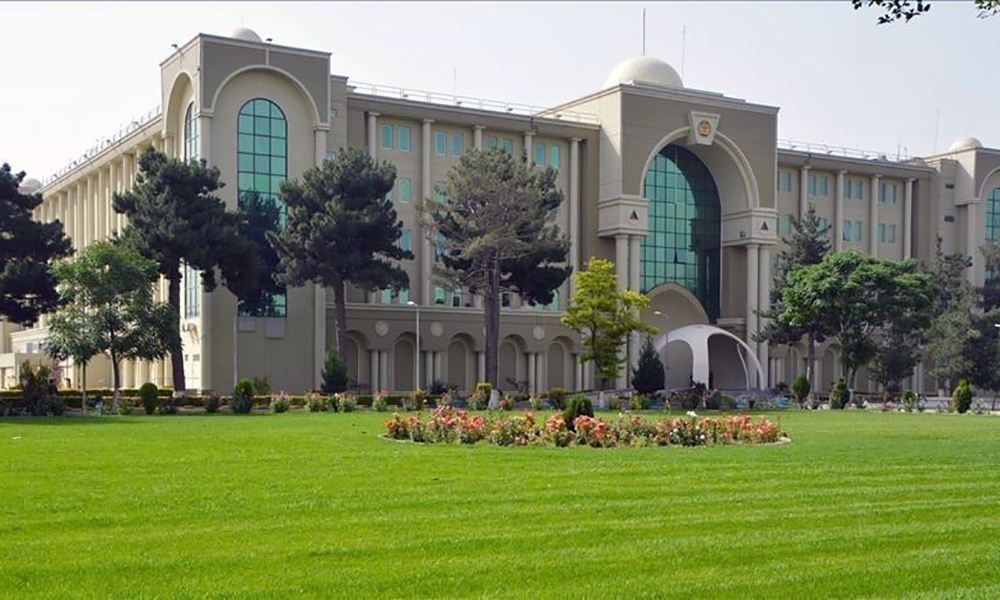
The Ministry of Defense of Afghanistan has announced that Afghan forces carried out fresh airstrikes on military targets in Miranshah and Spinwam, in Pakistan.
The strikes took place last night around 12:00 AM, according to the Ministry. In its statement, the Ministry said the Miranshah and Spinwam military bases were destroyed, resulting in heavy casualties.
The statement added that these “successful strikes were carried out in response to repeated air incursions by the Pakistani military regime.”
-

 Latest News2 days ago
Latest News2 days agoAfghan Air Force conducts airstrikes in Islamabad, other cities
-

 Latest News24 hours ago
Latest News24 hours agoPakistani military jet downed in Afghanistan’s Jalalabad, pilot captured alive
-
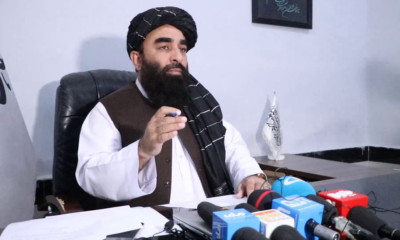
 Latest News2 days ago
Latest News2 days agoIEA: Special circle in Pakistan has launched mission to destabilize region
-

 Sport5 days ago
Sport5 days agoRichard Pybus appointed as head coach of Afghanistan’s national cricket team
-

 International Sports5 days ago
International Sports5 days agoAFC Champions League Elite gears up for Round of 16 as league stage concludes
-

 World3 days ago
World3 days agoIndia’s Modi backs Israel in address at Israeli parliament
-

 International Sports5 days ago
International Sports5 days agoWinter Olympics 2026 concludes with Norway on top of medal standings
-
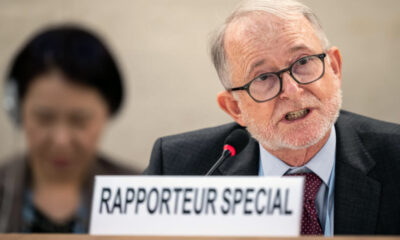
 Latest News5 days ago
Latest News5 days agoBennett expresses concern over civilian casualties in Pakistani airstrikes on Afghanistan




